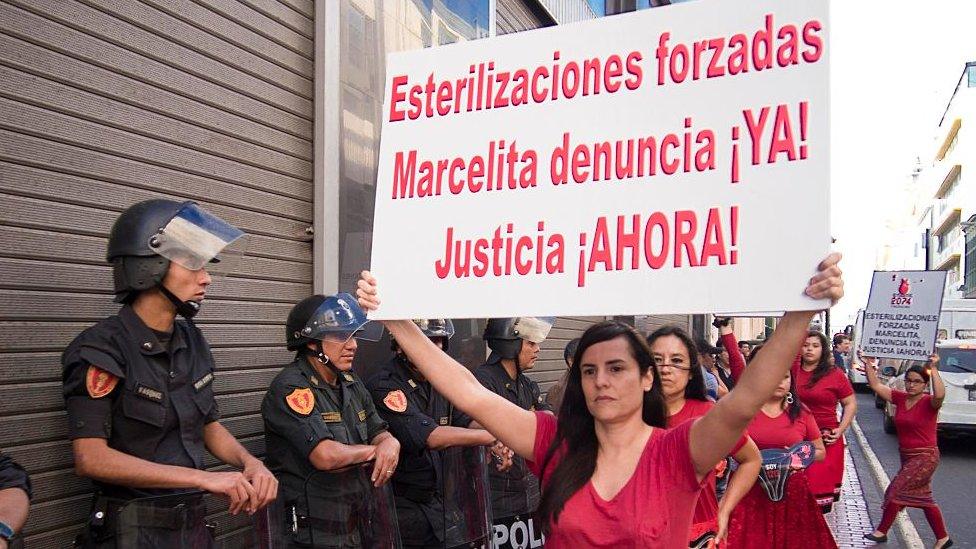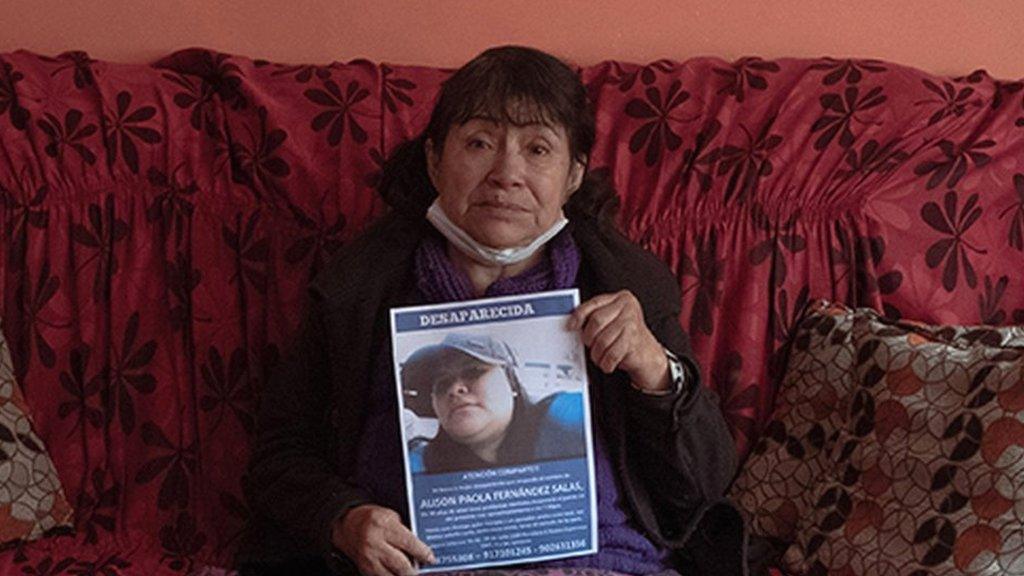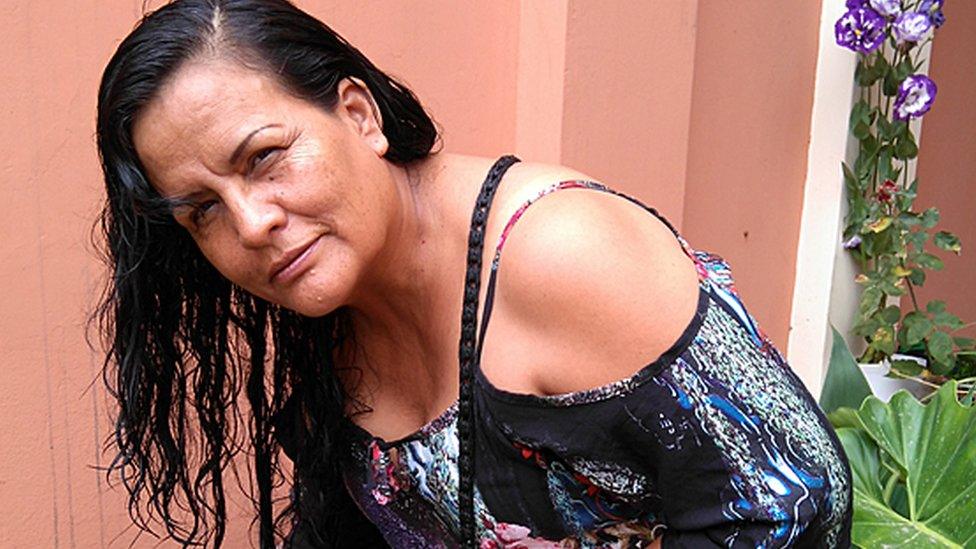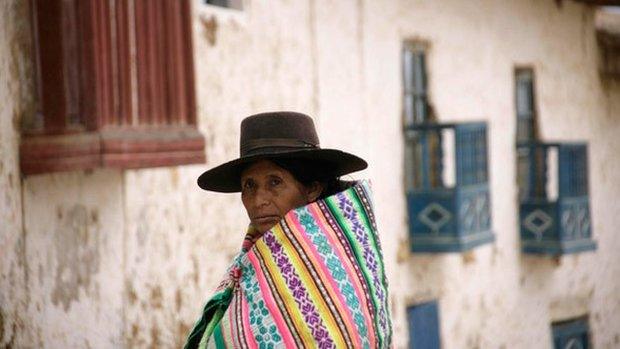Peru forced sterilisations case reaches key stage
- Published
"We are going to continue fighting": Josefina Quispe wants justice for women who had forced sterilisations
A key hearing is due to be held in Peru on Monday which could see former President Alberto Fujimori charged over the sterilisation of hundreds of thousands of Peruvians.
Fujimori has previously argued that all sterilisations were consensual but thousands of women have disagreed.
Some said they were not informed, others that they were tied down.
The programme was introduced as part of an anti-poverty drive, aimed at cutting birth rates among poor families.
Prosecutors are expected to argue that Alberto Fujimori's government is responsible for the forced sterilisations.
What is the case about?
More than 270,000 women and 22,000 men were sterilised as part of a government-run birth control programme between 1996 and 2000, according to official figures from Peru's health ministry.

Previous investigations were shelved, causing outrage among rights campaigners
Health officials from the administration of then-President Alberto Fujimori, and the ex-leader himself, have maintained that all the sterilisations were carried out with the consent of the patients.
But thousands of women have said they were misled, harassed, blackmailed or forced to undergo the procedure.
What do the women say?
Most of the thousands of women who have spoken out were from poor, indigenous areas of Peru. Many spoke Quechua as their first language and only limited, or no Spanish, meaning that they did not always understand the documents they were pressured to sign by medical staff.
Rudecinda Quilla is one of those whose statement forms part of the legal evidence. She says that when she tried to get issued a birth certificate for her fourth child in 1996, she was told by doctors that the only way to get the certificate would be to agree to have tubal ligation.
Ms Quilla, who was 24 at the time, refused. She says she was forced onto a hospital bed, her hands and feet tied while she was injected with an anaesthetic. When she woke up hours later, she had been sterilised and staff told her that she would "never breed like an animal again".
What will happen in court?
Prosecutors are expected to press charges against Alberto Fujimori, who governed Peru from 1990 to 2000, his then-health ministers and other government officials at the time of the sterilisation programme.
The judge suspended a previous hearing in January arguing that Quechua translators were needed to ensure the evidence by indigenous women would be heard and their full participation guaranteed.
The hearing will be conducted virtually do to Covid restrictions.
It is not clear whether Alberto Fujimori, 82, who is serving a 25-year-sentence for human rights abuses, will appear at the hearing.
Why so late?
There have been a number of previous attempts to investigate allegations of forced sterilisations dating back 20 years.
In 2001, the Inter-American Commission on Human Rights awarded a settlement to the family of Mamerita Mestanza, who died following tubal ligation she had been pressurised into by staff at her local health centre who had told her that having more than five children was illegal.
But to the frustration of campaigners and rights advocates, past investigations held in Peru were shelved for lack of evidence.
Campaigners say they hope Monday's hearing will result in a full, detailed and timely investigation which "will further justice".
Related topics
- Published25 October 2020

- Published28 March 2017

- Published2 December 2015
